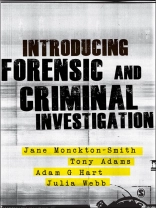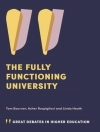This book is a lucid and practical guide to understanding the core skills and issues involved in the criminal investigation process.
Drawing on multiple disciplines and perspectives, the book promotes a critical awareness and practical comprehension of the intersections between criminology, criminal investigation and forensic science, and uses active learning strategies to help students build their knowledge.
The book is organised around the three key strategic phases in a criminal investigation:
– Instigation and Initial Response
– The Investigation
– Case Management
Each strategic phase of the investigative process is carefully explained and examined. Alongside this practical approach, theoretical perspectives and academic research are laid bare for students.
Introducing Forensic and Criminal Investigation is essential reading for students in criminology, criminal justice, policing, forensic psychology and related courses.
Table of Content
Introduction
A Brief History of Criminal Investigation
Criminal Investigation and Victims
Strategic Phase One: Instigation and Initial Response
Initial Response and Crime Scene Lockdown
Crime Scene Examiners
Strategic Phase Two: The Investigation
Investigative Strategy
Forensic Science Specialisms: Palynology, Entomology and DNA
Electronic and Passive Data
Suspect Prioritisation, Behavioural Analysis and Profiling
Interviewing Victims and Witnesses
Suspect Interviews
Strategic Phase Three: Case Management
Case Files
Case Reviews
About the author
Dr Jane Monckton-Smith is a senior lecturer in Criminology at the University of Gloucestershire.Professor Adam Hart is a biologist and Reader in Science Communication at the University of Gloucestershire.Julia Webb is a senior lecturer and technician at the University of Gloucestershire.Tony Adams is a former Detective Superintendent.












